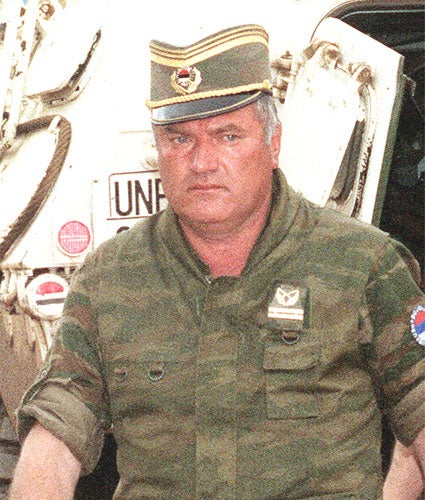Serbia apologise for Srebrenica massacre
Resolution condemned by Bosnian Muslims as not going far enough

The Serbian parliament last night passed resolution apologising for the 1995 massacre by Bosnian Serbs of 8,000 unarmed Muslim men and boys in the town of Srebrenica.
A bitterly debated draft of the declaration, opposed by Serb nationalists and condemned by Bosnian Muslims for not going far enough, extends condolences to the victims' families and the survivors of the single worst atrocity in Europe since the end of World War II. The wording condemns the massacre and apologises for Belgrade's failure to do more to prevent the killings, which were carried out by the Bosnian Serb Army and Serbian paramilitaries.
The Serbian Prime Minister Mirko Cvetkovic had urged the move saying it was necessary as "Serbia wants to demonstrate the desire to move to regional reconciliation and show good neighbourly relations among the countries in the region".
However, in a concession to Serb nationalists, the wording put to parliament crucially fell short of describing the atrocity as a genocide, using the terms "crime" and "tragedy" instead. The term genocide is used both by the International Court of Justice, the European Parliament and the International Criminal Tribunal for the former Yugoslavia.
"They (the MPs) shouldn't have bothered to adopt it (the resolution) with such a text," international law professor Vojin Dimitrijevic said. Many Serbs still live in denial that war crimes were committed in their name by their next of kin in the wars of the 1990s.
"The resolution in such a form does not mean a thing for us," said Hajra Catic, head of Women of Srebrenica, the Bosnia-based body representing families of massacre victims.
"Crimes were committed all over Bosnia, but it was genocide in Srebrenica; that is what happened," she said.
Ms Catic lost her husband Junuz, her son Nino and another 10 male members of her extended family in the aftermath of the fall of Srebrenica.
The Serb apology comes at a time when the Balkan nation is pushing hard to join the European Union. One of the political preconditions for accession is the arrest of the remaining author of the massacre, the Bosnian Serb general Ratko Mladic.
Despite the capture and arrest in 2008 of the Bosnian Serb political leader Radovan Karadzic, who is now on trial for war crimes in The Hague, Mladic remains in hiding and is still hailed by many Serbs as a hero. The parliamentary resolution calls for his arrest and urges the Bosnian Serb authorities to do everything they can to apprehend him.
Mladic's forces overran the UN-protected Muslim enclave in July 1995, separating men and boys from their families, who were allowed to leave. The men were summarily executed in nearby woods and buried in unmarked graves. Not all bodies have yet been recovered; that process continues, as does the painful task of identification.
Serb nationalists called the declaration "shameful" and tantamount to an admission of collective responsibility. "Serbia will sign its own guilt with this declaration", Slobodan Samardzic, a nationalist member, told the debate. "Why do you want to put a mark on the future generations that they will never wash away?" Velimir Ilic, another parliamentarian, asked.
In January 2009 the European Parliamnet called on all EU states to recognise 11 July, the date of the start of the massacre, as "a day of commemoration throughout the EU".
Join our commenting forum
Join thought-provoking conversations, follow other Independent readers and see their replies
Comments
Bookmark popover
Removed from bookmarks